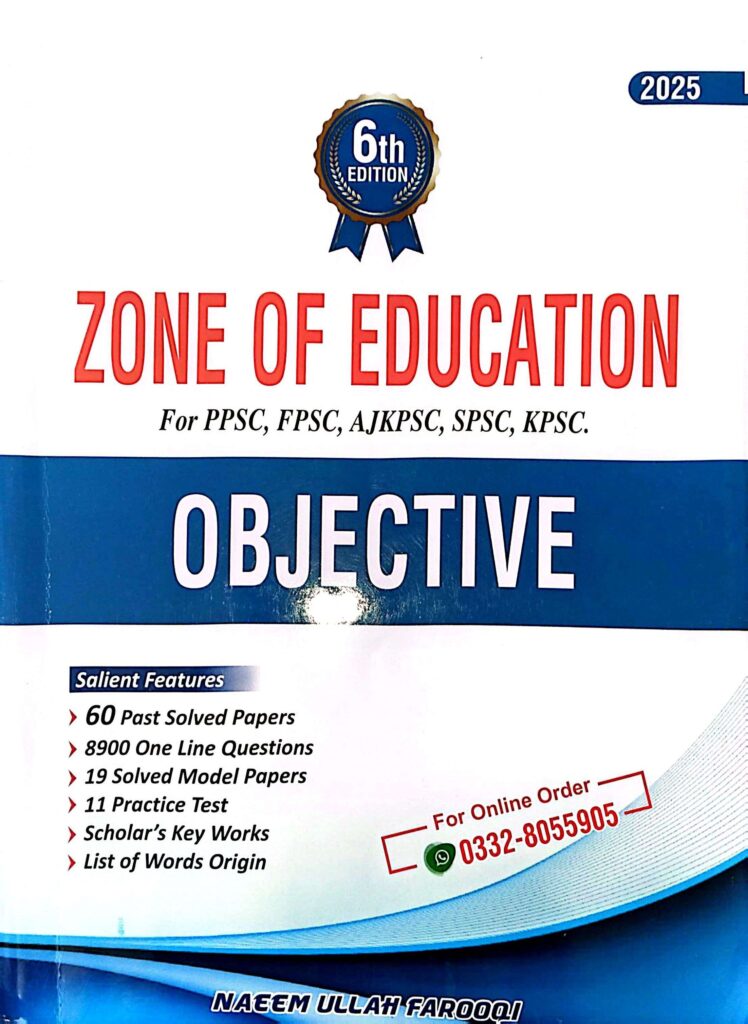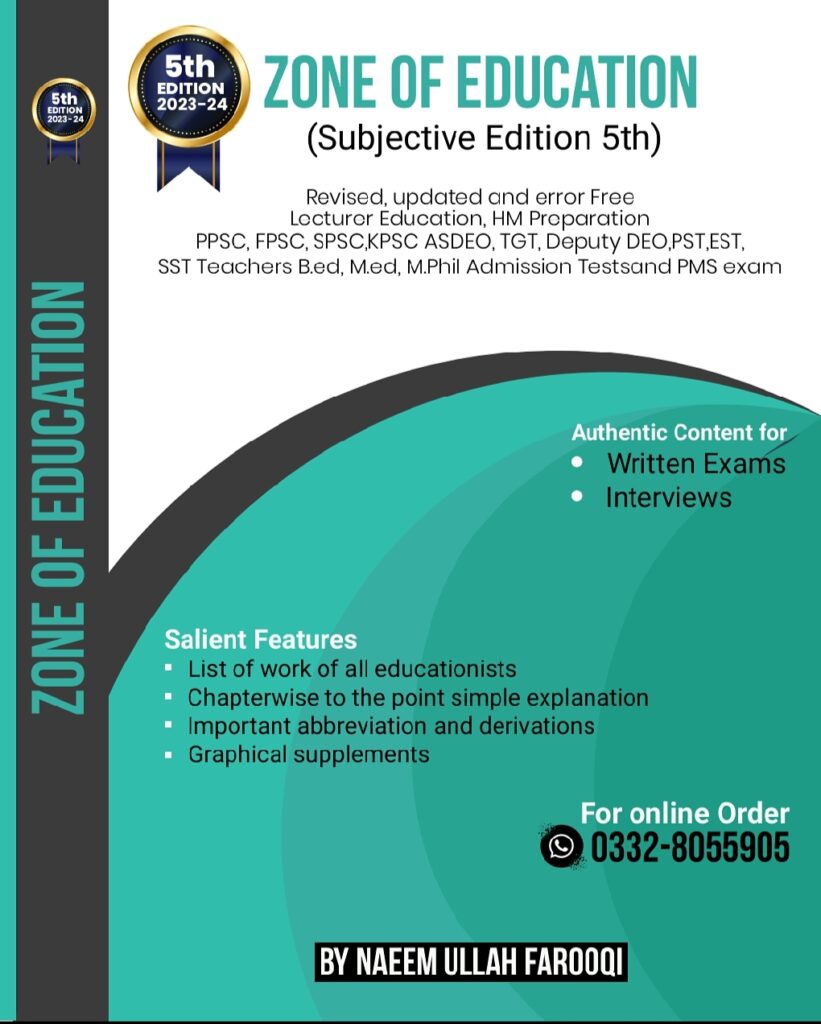History/Perspective 0f Education.
.1. The curriculum schemes duly approved are passed on to the provincial textbook boards for preparation of textbooks.
o a. True*
o b. False
2. Textbooks often do not reflect the curriculum.
o a. True*
o b. False
3. The classroom teacher, who primarily focuses on textbooks and assessment, takes into account the educational objectives.
o a. True
o b. False*
4. ______ curriculum in Pakistan is the function of the respective departments of the universities or colleges.
o a. Higher education*
o b. Provincial
o c. Federal
o d. Secondary education
5. The textbooks at the basic level have:
o a. Minimal local context*
o b. Maximum local context
o c. Both
o d. None
6. In early childhood education, textbooks are required as these are meant for pre-reading and pre-numeracy skills.
o a. True
o b. False
7. Only ______% of Pakistani children finish primary school education.
o a. 50%
o b. 40%
o c. 63%*
o d. None of the above
8. The duration of compulsory education is from ages:
o a. 7-15
o b. 3-10
o c. 5-10
o d. 5-15*
9. The All Pakistan Education Conference was convened in:
o a. 1940
o b. 1947*
o c. 1948
o d. 1956
10. The National Education Conference held in:
o a. 1947
o b. 1948
o c. 1950
o d. 1951*
11. National Commission on Education:
o a. 1947
o b. 1956
o c. 1951
o d. 1959*
12. Education Policy with Nationalization:
o a. 1956
o b. 1948
o c. 1972
o d. 1982
13. National Education Policy:
o a. 1951
o b. 1947
o c. 1959
o d. 1979*
14. Education Policy:
o a. 1992
o b. 1979
o c. 1972
o d. 1951
15. What is the main area of emphasis in all these reports and policies?
o a. Emphasizing vocational education
o b. Equality of opportunity for education
o c. Free and compulsory elementary education
o d. All of these*
16. What was the basic recommendation of All-Pakistan Education Conference 1947?
o a. Education should be inspired by Islam
o b. Free and compulsory elementary education
o c. Emphasis on technical education
o d. All of these*
17. New textbooks planned to be in schools:
o a. 2000
o b. 2002
o c. 2004
o d. 2010*
18. Problem of curriculum planners:
o a. Background and mindset
o b. Approach to curriculum development
o c. National problems
o d. All of these*
19. In the National Education Policy 2009, a comprehensive review of school curricula was initiated in:
o a. 2001
o b. 2002
o c. 2005*
o d. 2007
20. Strategy for implementing curriculum change:
o a. Evolution of curriculum objectives
o b. Development of scheme of studies
o c. Development of syllabus of each subject
o d. Development of textbooks/instructional materials
o e. All of these*
21. The scheme of studies is based on:
o a. The national education policy
o b. Market demand
o c. Global issues that relate to new or contemporary education dimensions
o d. All of these*
22. Subject-specific syllabi are prepared in consultation with:
o a. Provincial curriculum centers
o b. Subject experts*
o c. Psychologists
o d. Serving teachers
o e. All of these*
23. Textbooks are produced by the Textbook Boards:
o a. Federal
o b. Provincial
o c. National
o d. All of these
24. The Textbook Boards select authors for the textbooks:
o a. True*
o b. False
25. A National Review Committee, comprising five or six members, includes at least one expert from the Syllabus Formulation Committee; two subject experts:
o a. Two school teachers
o b. Students
o c. Two educators
o d. All of these
26. The process of curriculum reform in Pakistan has been introduced as part of the successive series of national education policies:
o a. True*
o b. False
27. School education is the responsibility of:
o a. Tehsil
o b. Union
o c. District*
o d. All of these
28. The role and responsibilities distribution between the provincial and district governments must be:
o a. Thematic
o b. Functional
o c. Both*
o d. None
29. What is the main source of assessment?
o a. Textbooks*
o b. Curriculum
o c. Both
o d. None
30. What was the common thing in all education policies?
o a. Ideology of Pakistan
o b. Ideology of Quaid-I-Azam
o c. Preference of Islamic teachings
d. A & C*
JOIN ZONE OF EDUCATIONPK!
Discover the most comprehensive and reliable pedagogy resources in Pakistan, curated for competitive exam success. Our content covers all competitive exam MCQs, including PPSC, FPSC, AJKPSC, SPSC, and more. Designed to empower learners with top-notch material and insights, trust us for your preparation journey!


